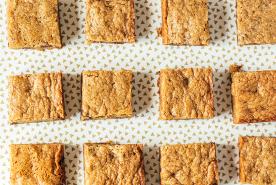February 21, 2024
Understand the important link between heart and kidney health. Get actionable tips for improving your overall health and well-being.
Heart disease is the leading cause of death in the United States, with one person losing their life to it every 33 seconds.1 It's also a risk factor for kidney disease, another leading cause of death in America.
The good news? There are plenty of ways to protect your kidney and heart health. In honor of American Heart Month, let's explore how the heart and kidneys work together and what you can do to keep them healthy.
How are the kidneys and the heart connected?
Your heart and kidneys work together to keep you healthy. If one of them has a problem, it can affect the other.
Your heart sends oxygen-rich blood to the kidneys, allowing them to do their jobs;
- Clean the blood
- Help control blood pressure
- Maintain mineral balance
When your heart is not functioning well, it can damage the kidneys. This, in turn, can exacerbate the damage to the heart, creating a cycle that may result in even more harm to the kidneys.
Learn more about the kidney-heart connection.
Are you at risk?
Both heart and kidney diseases are very serious, but knowledge is power. The first step to protecting yourself from them is understanding what causes them.
Top heart and kidney disease risk factors include:
If you are at risk for heart or kidney disease, speak with a healthcare professional about how you can protect your health.
Learn how to lower your risk for kidney and heart disease.
Six tips to protect your heart health
Ready to protect your heart and kidney health? Here are six ways to get started. Speak with a healthcare professional before significantly changing your diet or lifestyle. Please note that some of these tips may not work for you if you have kidney disease or are on dialysis.
1. Get tested
Many of the heart and kidney disease symptoms and risk factors are silent. That means you wouldn't know you were sick unless you got tested or the disease has significantly worsened.
Routine testing is the best way to prevent an issue before it starts or to catch it early enough to slow it down.
Melissa Bensouda, a dialysis patient first diagnosed 20 years ago, knows this all too well. By the time she was diagnosed, it was too late to maintain her kidney function for long. Within three years Melissa’s kidneys failed. Now she advocates for kidney disease testing.
"I always ask about the last time people had blood work done and had their kidneys checked. I'm at family gatherings asking when you last had your eGFR checked," said Melissa. "My family knows what creatinine is. I'm asking about their blood pressure and sometimes we take blood pressure at family gatherings. You can never have too many conversations about it and why kidneys matter."
Ask your healthcare provider to:
- Check your blood pressure using the blood pressure cuff.
- Make sure your sugar levels are within normal ranges.
- Run a urine test for ACR (albumin to creatinine ratio). Albumin is an essential protein that should be in the blood, not the urine.
- Run a blood test for Serum Creatinine. The kidneys typically remove this waste product. If kidney function goes down, creatinine levels go up. Results from this test are used to determine your eGFR.
Learn more about kidney tests.
2. Eat a plant-based diet
A well-balanced, plant-based diet can prevent or slow the progression of chronic kidney disease, Type 2 diabetes, high blood pressure, and heart disease.
Here are three plant-based diets that might work for you:
- DASH Diet: A flexible diet designed with heart health in mind. To follow, limit salt and aim for five servings of fruits and vegetables per day. You'll also opt for low-fat dairy products and limit red meats. This diet may not be suitable for people on dialysis.
- Mediterranean Diet: A diet full of cereals, grains, vegetables, beans, fruits, and nuts. It includes fish, cheese, olive oil, and yogurt in moderation but limits red meat.
- MIND Diet: A combination of Mediterranean and DASH diets to promote brain health. It recommends lots of green leafy vegetables, berries, nuts, olive oil, whole grains, fish, beans, and poultry.
Before starting any new diet, speak with your healthcare provider and kidney dietitian.
Learn more about plant-based diets.
3. Keep high blood pressure under control
High blood pressure causes blood to pump against the artery walls hard enough to cause damage. It's the second leading cause of kidney disease. This is a truth Marlon Condoll Jr., a music producer on dialysis, learned too late. Now spreads the word, urging people to take blood pressure seriously.
"I'm sharing my story because high blood pressure flies under the radar. People aren't informed about how serious it can be." Marlon said, "I want everyone to know about their blood pressure. They may be able to avoid dialysis by paying attention to it."
To manage your blood pressure:
- Check it regularly.
- Eat less sodium.
- Limit alcohol.
- Take all your medicines as instructed.
Follow your healthcare provider's recommendations about diet and exercise.
Get NKF-approved low-sodium recipes.
4. Watch your cholesterol
Cholesterol is a fat-like substance in your blood. You need it but in the right quantities. Too much may clog blood vessels and cause issues like heart disease or heart attacks.
To manage cholesterol:
- Eat low-saturated fat foods.
- Choose lean meats.
- Use cooking methods like steaming or baking.
- Include fruits, vegetables, and grains with soluble fiber in your diet.
- Avoid trans fats.
5. Get physical
Regular exercise is a powerful tool for disease prevention, weight management, and increasing physical and mental health. Don't worry–you don't have to hit the gym seven days a week for these benefits. It can be as simple as taking a walk.
"Walking is one of the best aerobic exercises. You can do it anywhere without equipment. For weight training, use weights, a resistance band, or grab two cans of beans out of the pantry and bicep curl or shoulder press with them," Brittany Glazer, a clinical exercise physiologist, said. "Be sure to warm up. Stretch for five minutes or ride a recumbent bike to help avoid injuries. Start small and listen to your body. Be patient and consistent."
Learn more about the importance of exercise.
6. Take medications as directed
Sometimes, lifestyle and dietary changes aren't enough. That's okay! Taking medication does not represent failure. Many medications are available to help you control your cholesterol, blood pressure, and weight. Speak with a healthcare provider to learn if medication, and what type of medications, could be right for you.
Use the card to receive discounts on any of your prescriptions while helping fight kidney disease simultaneously!
Source


















